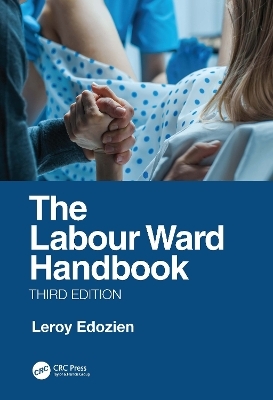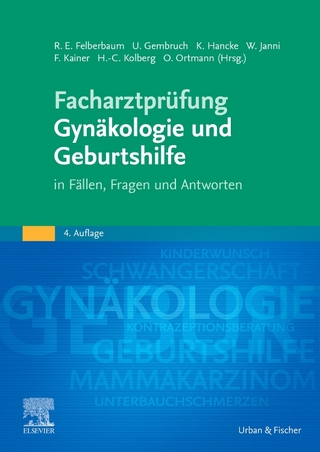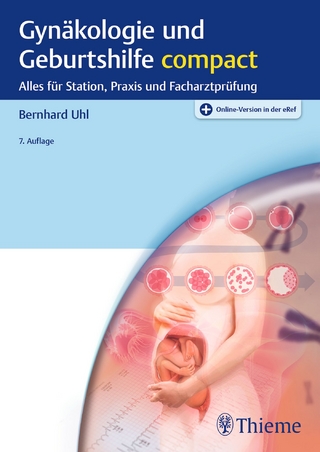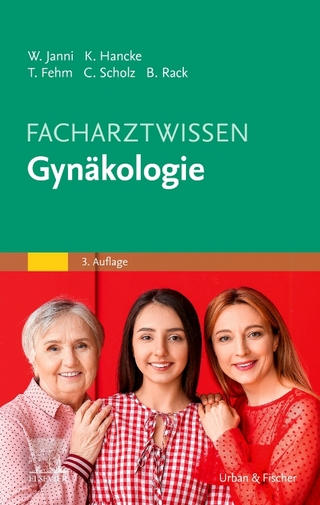
The Labour Ward Handbook
CRC Press (Verlag)
978-1-138-29663-3 (ISBN)
Key Features
Provides detailed clinical practice guidelines for the care of women in labour
Offers a ready guide for use in the delivery suite by the busy obstetric clinician and all members of the team
Focuses on the clinical relevance of the problem points arising.
Dr Edozien has been Former Consultant in Obstetrics and Gynaecology at St Mary’s Hospital, Manchester, UK and Professor & Director of Institute of Advanced Clinical Sciences Education at University of Medical Sciences, Ondo City, Nigeria.
Preface. Acknowledgements. About the Author. Abbreviations. Glossary. Bleep/crash calls. Part I: Approach to care. The biopsychosocial approach to care of the woman in labour. Communication between care providers. Documentation. Admission to, and discharge home from, the delivery suite. Learning from clinical incidents. T ransfer of care between professionals. Reviewing what happened. Part II: Normal and Low-Risk Labour. Vaginal examination. Intravenous cannulation. Management of normal labour. Prelabour rupture of membranes at term (37–42 weeks). Management of the first stage of labour. Fetal monitoring. Fetal scalp blood sampling. Augmentation of labour. Cord-blood sampling. Epidural analgesia in labour. Management of the second stage of labour. Criteria for paediatric attendance at delivery. Management of the third stage of labour. Immediate postpartum care. Care of the newborn. Meconium-stained amniotic fluid. Neonatal resuscitation. Babies born before arrival at hospital. Episiotomy. The woman with a history of childhood sexual abuse. Use of birthing pool. Part III: Abnormal and high-risk labour. SECTION 1. Powers, passenger, passage. Caesarean section. Recovery of obstetric patients. High-dependency care. Failed intubation drill. Instrumental delivery. Trial of vaginal delivery after a previous caesarean section. Induction of labour. Antenatal corticosteroid therapy. Preterm prelabour rupture of membranes. Preterm uterine contractions. Deliveries at the lower margin of viability. Multiple pregnancy. Abnormal lie in labour. Occipito-posterior position. Malpresentation. Breech presentation. External cephalic version. The woman with genital cutting. The obese woman in labour. Perineal tear. SECTION 2. Medical conditions. Heart disease in labour. Peripartum cardiomyopathy. Pre-eclampsia. Eclampsia. Diabetes mellitus. Asthma (acute exacerbation in labour). Epilepsy. Systemic lupus erythematosus. Connective tissue disorders. SECTION 3. Haemorrhage and haematological disorders. The rhesus-negative woman. Thromboembolism prophylaxis. Acute venous thromboembolism and pulmonary embolism. Major haemoglobinopathy. Inherited coagulation disorders: Haemophilia and von Willebrand disease. Immune thrombocytopenic purpura. Thrombophilia. Gestational thrombocytopenia. Antepartum haemorrhage. Major placenta praevia. Placenta accreta spectrum. Retained placenta. Postpartum haemorrhage. Disseminated intravascular coagulopathy. Delivery of the woman at known risk of haemorrhage. Standards for administering blood transfusion. Management of the woman who declines blood transfusion. SECTION 4. Infection. Prophylactic antibiotics. Intrapartum sepsis. Hepatitis B and C. Intrapartum antibiotic prophylaxis for Group B streptococci. Genital herpes. Human immunodeficiency virus. The woman with COVID-19. SECTION 5. Other obstetric emergencies. Paravaginal haematoma and cervical tear. Rupture of the uterus. Shoulder dystocia. Cord prolapse. Anaphylaxis. Inverted uterus. Amniotic fluid embolism. Sudden maternal collapse. Latex allergy. SECTION 6. Stillbirths and congenital abnormalities. Checklist for fetal loss at 13–23 weeks. Intrauterine fetal demise. Mid-trimester termination of pregnancy for fetal abnormality. Appendix. Index.
| Erscheinungsdatum | 01.08.2023 |
|---|---|
| Zusatzinfo | 11 Tables, black and white; 12 Line drawings, black and white; 2 Halftones, black and white; 14 Illustrations, black and white |
| Verlagsort | London |
| Sprache | englisch |
| Maße | 178 x 254 mm |
| Gewicht | 640 g |
| Themenwelt | Medizin / Pharmazie ► Allgemeines / Lexika |
| Medizin / Pharmazie ► Medizinische Fachgebiete ► Gynäkologie / Geburtshilfe | |
| Medizin / Pharmazie ► Medizinische Fachgebiete ► Notfallmedizin | |
| Medizin / Pharmazie ► Medizinische Fachgebiete ► Pädiatrie | |
| ISBN-10 | 1-138-29663-5 / 1138296635 |
| ISBN-13 | 978-1-138-29663-3 / 9781138296633 |
| Zustand | Neuware |
| Informationen gemäß Produktsicherheitsverordnung (GPSR) | |
| Haben Sie eine Frage zum Produkt? |
aus dem Bereich


